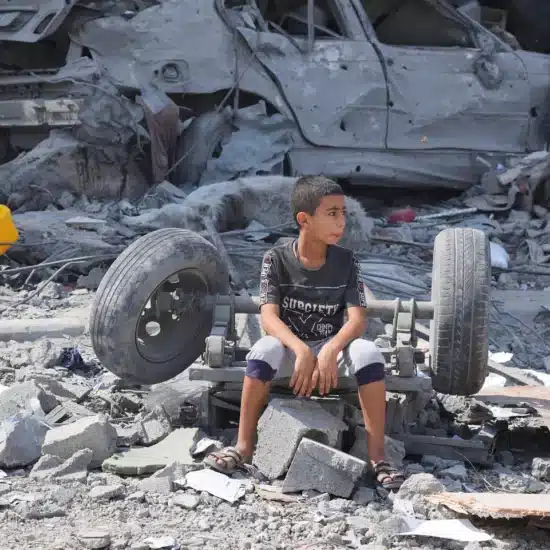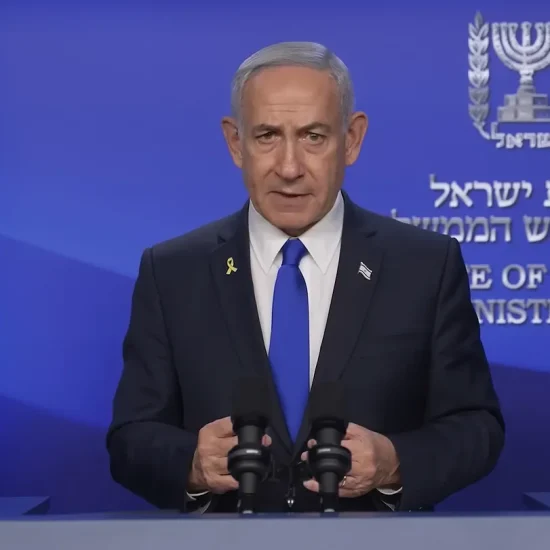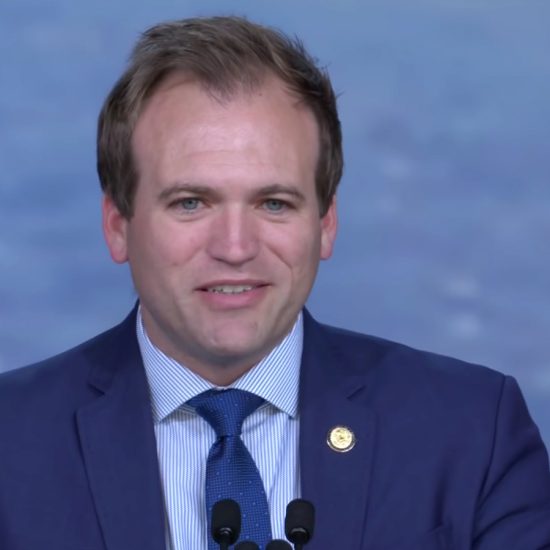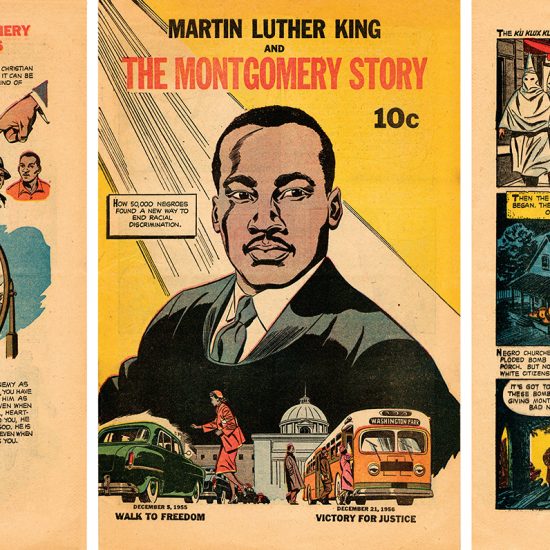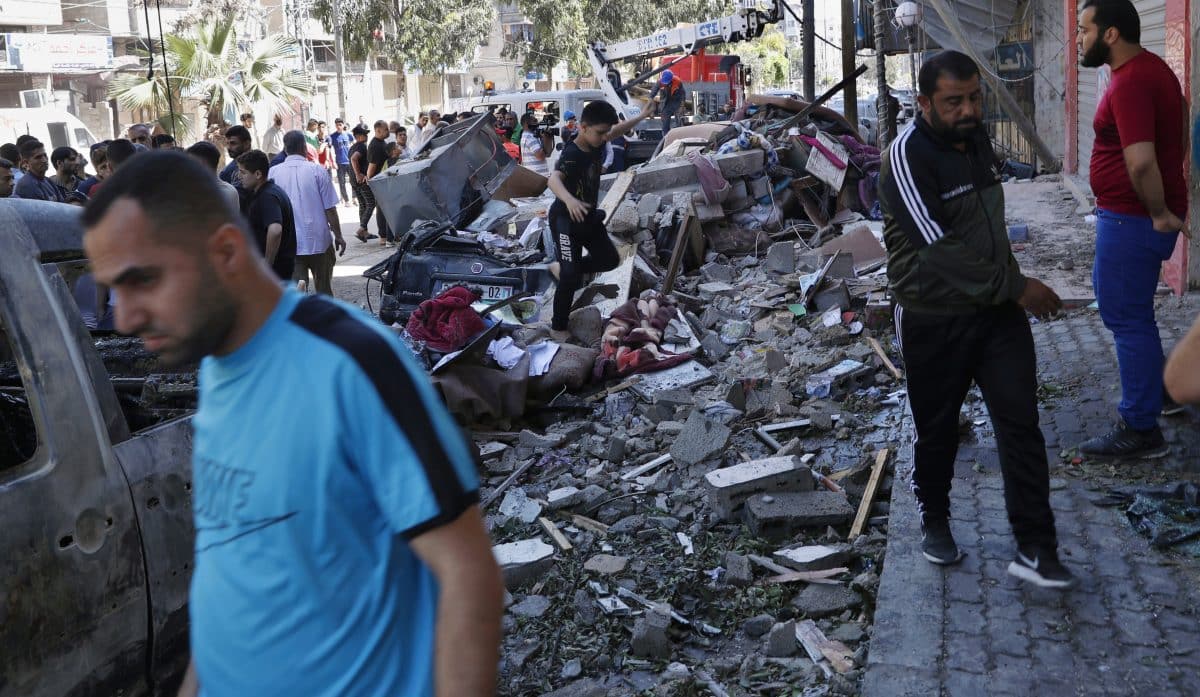
Growing up in my Southern Baptist church, I heard a clear message: the modern state of Israel represented God’s chosen nation and thus deserved our unconditional support. Then I met Palestinian and Arab Baptists living and ministering in Israel, Gaza, and the West Bank. Now my views about events in Holy Land are more complicated — and more biblical.
Azar Ajaj, president of Nazareth Evangelical Seminary, described how being an Arab Christian living in Israel meant experiencing life as “a minority within a minority within a minority.” Another Christian educator, Yohanna Katanacho, from Bethlehem Bible College in the West Bank, challenged me to read scriptures in fresh ways as he rewrote prayers from the Book of Psalms from his contemporary vantage point. Katanacho also explained how a poor translation of Genesis 12 is used to say that Israel is blessed instead of the text giving a command for Israel to be a blessing to others. I found both my understanding of, and my heart for, the region expanding from their tutelage and from trips to visit Christians in Jordan and Turkey.
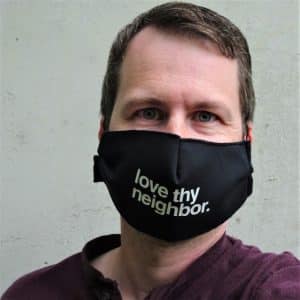
Brian Kaylor
Moreover, my eyes were opened to the generational trauma left by decades of injustice. Here my teacher was Hanna Massad, who pastored the only Protestant church in the Gaza Strip. Our paths first crossed over a decade ago at an event organized by former President Jimmy Carter. We have stayed connected online, with Massad continuing to help me see what the news here misses. For instance, he told me about damage inflicted on his church during Israeli airstrikes a decade ago, as well as other acts of violence that threatened the tiny Christian community persevering through persecution, war and rumors of war.
And as coronavirus hit last year, he explained how the pandemic could be particularly dangerous in the densely-populated area that lacked proper health supplies even during non-pandemic times. Along with issues related to cleaning, sterilization, and adequate supplies of personal protective equipment, there are only about 70 intensive care unit beds and 50 ventilators in all of Gaza, which is home to more than 2 million people.
Gaza unfortunately returned to the headlines recently. Our attention turns there only when violence and death manage to break past the blockages. I reached back out to Massad. He mentioned that Gaza Baptist Church sustained some minor damage and he lamented the growing death toll. Sadly, he does not foresee “an end to the bloodshed and suffering that plagues this region” happening unless people actually seek a solution that’s fair for everyone.
“Violence comes in various shapes and forms, but the result is almost always the same: more people killed, more families grieving for loved ones, more bloodshed, and more homelessness,” he wrote. “Seek a long-term solution that both Palestinian and Israeli Jews can live with. This solution needs to be sought without losing your commitment to love or justice.”
His appeal to justice reminded me of a prophetic statement made by another Baptist preacher, the Rev. Dr. Martin Luther King Jr. In his early book Stride Toward Freedom, King recalls being accused of upsetting the peace in Montgomery, Alabama. He insisted the reality was different. They only had “a sort of negative peace in which the Negro too often accepted his state of subordination. But this is not true peace.” Then he added a line later chiseled into stone at his memorial in Washington, D.C.: “True peace is not merely the absence of tension; it is the presence of justice.”
And that’s why the newly-announced ceasefire between Israel and Hamas is not sufficient. Stopping the rocket attacks on Israel and the missile strikes on Gaza was obviously needed. But we must not celebrate a return to the old normal of just a couple weeks ago.
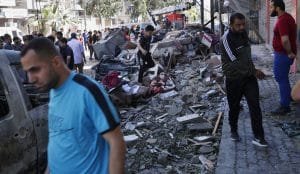
People inspect the rubble of destroyed the Abu Hussein building that was hit by an Israeli airstrike early morning, in Gaza City on May 19, 2021. (Adel Hana/Associated Press)
If Gaza returns to the prior status quo — albeit with more dead and homeless — the situation may soon fade from the news and from our minds but not from the realm of injustice. Largely cut off from the outside world for 15 years, the area has been under an Israeli blockade that prevents many humanitarian and basic supplies from reaching territory. The poverty level and unemployment rates were both already above 50% before the recent attacks. Access to electricity and water has long been sporadic.
This is the life Massad critiqued a few years ago in his book, Pastor from Gaza. He explained, “My thoughts are often about injustice because I am Palestinian and it is in the air I breathe. In my experience, injustice is even more devastating than violence because it cuts through flesh, deep into soul and spirit.”
The absence of peace in Gaza isn’t a new reality that emerged with the rockets’ red glare of the past two weeks. Peace did not exist a few weeks ago when Israel soared to the top of vaccination rates in the globe while Gazans saw virtually no progress. Peace did not exist last year when COVID-19 tore through a place already lacking adequate medical care. Peace did not exist two years ago when so many Gazans found themselves unemployed and below the poverty line with their own movements restricted by geopolitical realities beyond their control.
Which takes me back to my childhood church. While preachers and Bible studies told me to support Israel, they also taught me the preciousness of life and the moral duty to love our neighbors. There have been lives lost on both sides of this fight, many of them women and children. All explanations for such senseless killings — whether by rocket launches or bombings in civilian neighborhoods — fall short of justification.
All of us, regardless of our faith or nationality, cannot dismiss the killing of an innocent person in Gaza as worth inherently less than an Israeli life (nor vice versa). My own Christian faith teaches that all people are made in the image of God, and whoever sheds innocent blood should be condemned. Such judgment was rendered by the prophets in the Hebrew scriptures towards the injustices of ancient Israel. It cannot go unremarked upon today.
The question that I feel must be asked is not which nation is chosen by God, but how do we stop violence and injustice wherever it exists? We must realize that the injustices made visible on our television screens in dramatic fashion by projectiles hurling through the air will linger long after the cameras turn their lenses on other events.
My fear is that political and faith leaders around the world will celebrate the ceasefire as the “end” of violence. Such a veneer of peace only perpetuates the ongoing harms that lead to the next, inevitable moment of conflict and loss of life.
It is time to speak in new ways that demand more sustainable and equitable outcomes. This is a place where the faith community in the United States can lead but, sadly, our witness also often falls short. For example, in 2016 the Southern Baptist Convention passed a resolution uncritically supporting the state of Israel despite pleas from a fellow pastor in Arizona who was an Arab Baptist raised in Nazareth that such statements ignored the plight of Palestinian Christians and hurt their cause for recognition.
As Katanacho told me at the time, that resolution would harm the “peacemaking ministry” of Christians in Israel and Palestine. He added, “It is a program for war, not peace.” In these last two weeks, we have seen his words proven as prophetic.
Brian Kaylor is president & editor-in-chief of Word&Way. Follow him on Twitter: @BrianKaylor.

